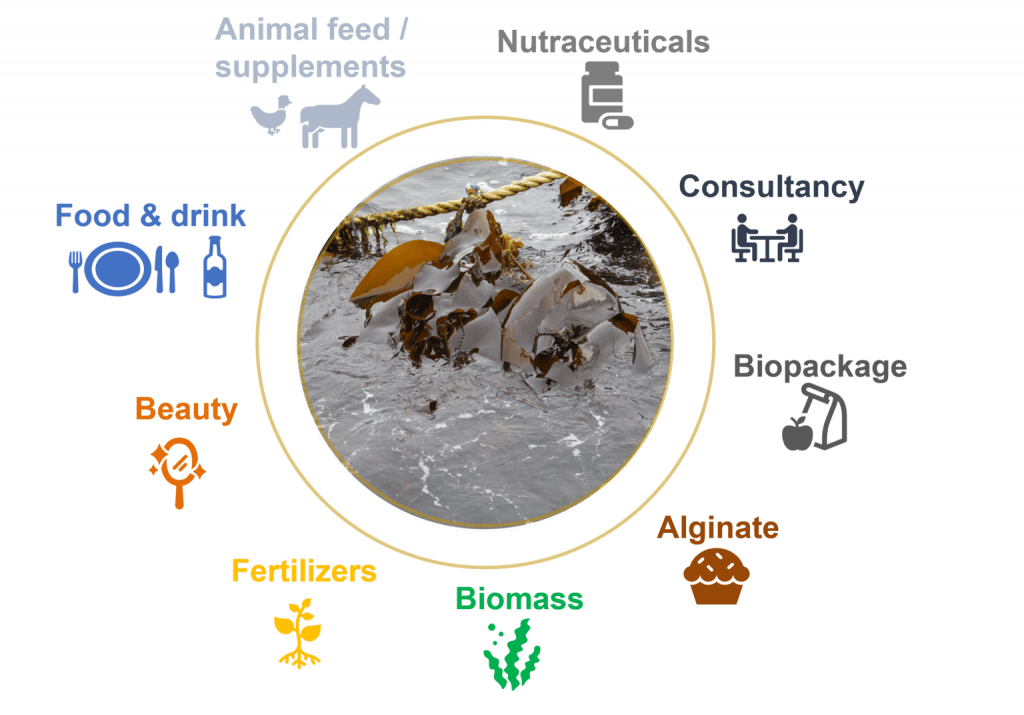“The seaweed industry in the UK has the potential to thrive and support a range of businesses. Farming of seaweed could contribute towards different ecosystem services.”
Ocean Film Awards 2022: Help Our Kelp
.
Saturday sees the return of the annual Sidmouth SeaFest:
Visit Sidmouth | What’s on | Sidmouth Sea Fest
Sidmouth Sea Fest – Sidmouth Coastal Community Hub CIC
(20+) Sidmouth Sea Fest | Facebook
And this year’s theme at the SeaFest is ‘kelp’:
Kelp our Oceans – Vision Group for Sidmouth
The VGS news pages have also been looking at this recently:
Planting seaweed and seagrass forests – Vision Group for Sidmouth
Increasing questions about expanding Brixham’s Fish Quay and Market – Vision Group for Sidmouth
The government’s own marine science blog has also been looking at seaweed:
A history of production and a renewed interest

Posted by: Elisa Capuzza, Posted on: 5 May 2022
In the UK, seaweeds have been used for centuries as a food, feed, and soil enricher, playing an important role, particularly for island communities. Around 600 species of seaweed can be found along the UK shore, with brown seaweed, such as kelp and wracks, representing the most abundant seaweed type. However, the size of the seaweed industry and the scale of production in the UK have been fluctuating with peaks and troughs throughout the centuries.
For example, during the peak production of the 17th-18th centuries, brown seaweeds were burned to produce soda ash, used in glass and soap production and for bleaching linen. Kelp kilns and kelp houses are still visible today, reminders of the thousands of tons of seaweed that were processed annually.
A growing number of seaweed-businesses and products
Brown seaweed such as kelp and wrack species, e.g. Fucus and Saccharina, and red seaweed such as dulse (Palmaria palmata) and laver (Porphyra spp.) are other important species produced or used by UK businesses.
Future perspectives and challenges for the UK seaweed industry
The seaweed industry in the UK has the potential to thrive and support a range of businesses. Farming of seaweed could contribute towards different ecosystem services, such food provisioning and regulating services. However, for the industry to grow and realise this vision, several knowledge gaps and challenges remain and need to be addressed.
The developing UK seaweed industry – Marine Science
And there’s been a lot of interest in the issues of late:
From Washington state:
KUOW – Our local seaweed is disappearing. Could farming help conserve it?
From the Seaweed Academy in Oban and the Cornish Seaweed Company:
Seaweed could be a vital ingredient in the fight against climate change
From the pioneering seaweed farm SeaGrown in Scarborough:
Britain launches offshore seaweed farm that’s a boon in the climate change battle
And from the University of Plymouth – where they’ve just won a film prize:
Environment & Sustainablility – University of Portsmouth: Portsmouth News and Information
Ocean Awards 2022: Public Awareness Award winner Help Our Kelp – YouTube